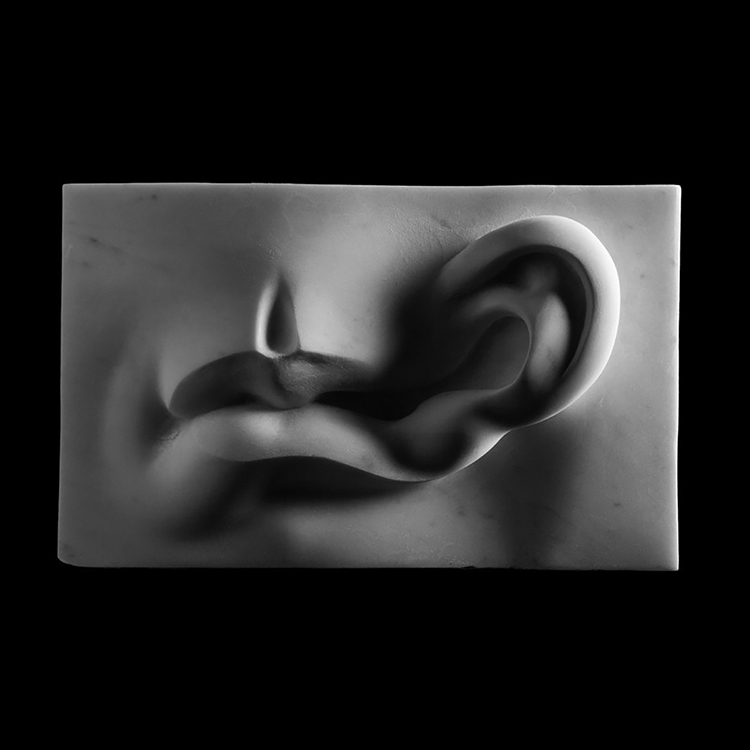
Hannah Arendt:
On Violence (1970)
Part I.
The Common denominator of the 20th Century is violence.
The technical developments of the implements of violence and their destructive potential are beyond any possible political goal. If either “wins” it is the end of both.
The goal is deterrence and more and more deterrence are the guarantee of piece.
Violent action is ruled by means-end category. The end is in danger of being overwhelmed by the means which it justifies.
Since the end of human action, as distinct from the end products of fabrication, can never be predicted, the means to achieve political goals are more often than not of greater relevance to the future world than the intended goals.
Those engaged in the perfection of the means of destruction have finally reached a level of technical development where their aim, namely, warfare, is on the point of disappearing altogether by the means at its disposal.
General André Beaufre: Only ‘in those parts of the world not covered by nuclear deterrence’ is war still possible. (Battlefields of the 1980s).
Events, by definition, are occurrences that interrupt routine processes and procedures.
Only in a world in which nothing of importance ever happens could the futurologist dream come true.
Every action and every accident necessarily destroy the whole pattern in whose frame the prediction moves and where it finds its evidence.
Carl von Clausewitz: Violence is the continuation of politics by other means.
Friedrich Engels: Violence is the accelerator of economic development.
The second World War was not followed by peace but by a cold war.
The priority of war-making potential is the principal structuring force in society.
Report from Iron Mountain: War is an extension of diplomacy. Peace is the continuation of war by other means.
Robot soldiers will have made ‘human soldiers completely obsolete’.
Violence has become dubious in international relations but gained in reputation and appeal in domestic affairs.
On revolutions and its relation to violence. Mao, Marx, Sorel, Fanon, Sartre.
Mao Zedong: ‘Power grows out of the barrel of a gun’.
According to Georges Sorel there is nothing more violent than the general strike. Now regarded as a nonviolent mean.
According to Karl Marx man ‘produces’ himself through labour.
Man creating himself is a rebellion against the very factuality of the human condition.
Jean-Paul Sartre: ‘To shoot down a European is to kill two birds with one stone…’
http://magazin.spiegel.de/EpubDelivery/spiegel/pdf/45789182
Footnote 21: ‘The joy of destruction is a creative joy’ – yes indeed, if one believes that ‘the joy of labour’ is productive; destruction is about the only ‘labour’ left that can be done by simple implements without the help of machines, although machines do the job, of course, much more efficiently.
The proliferation of new technologies not only threatens certain classes with unemployment but also menaces the existence of nations and mankind.
The Battle of People’s Park, Berkley.
Regarding student rebellion, violence has remained mostly a matter of theory and rhetoric.
Black Power movement was more practice oriented.
Black violence is analogous to labour violence of a generation earlier.
Report on Violence in America: ‘Force and violence are likely to be successful techniques of social control and persuasion when they have wide popular support.’
Sartre: ‘Violence, like Achilles’ lance, can heal the wounds it has inflicted.’
Analysis of rebellions and revolutions according to emancipatory ideologies and their leaders.
According to Marx, dreams never come true. Rebellions by the oppressed are rare and when they occur ‘mad fury’ turned them into nightmares for everybody.
Victory would not change the world, but only its personnel.
The Third World is not a reality but an ideology.
Every revolution has been led by the disinterested.
Pierre-Joseph Proudhon: ‘We are born perfectible, but we shall never be perfect’. In Philosophy of Progress (1853).
Progress is supposed to come about through the clashes of antagonistic forces. So, every ‘regress’ is a necessary but temporary setback.
Doctrines are usually based on uncertain, unprovable promises of progress.
The ancient notion of a Golden Age at the beginning, from which everything else is derived, implies the unpleasant certainty of continuous decline.
General future of mankind has nothing to offer to individual life. Only certain future is death.
Alexander Herzen: ‘Human development is a form of chronological unfairness. Late comers are able to profit by the labours of their predecessors.’
Immanuel Kant: ‘The earlier generations carry on their burdensome business only for the sake of the later’.
Advantage: progress not only explains the past, but it can serve as a guide for acting into the future.
Let us develop what we have into something better, greater etc.
Develop present contradictions into their inherent synthesis.
Hegel: ‘Nothing else will come out but what was already there.’
The demand for original scholarship has led to sheer irrelevancy. Knowing more and more about less and less. The development of a pseudo-scholarship which destroys its object.
The progress of science has ceased to coincide with the progress of mankind. It could even spell mankind’s end. Further progress of scholarship may end with the destruction of everything that made scholarship worthwhile.
Progress can no longer serve as the standard by which to evaluate the disastrously change-processes we have let loose.
Warning: If history is a continuous, inevitable chronological process, violence in the shape of war and revolution may appear as the only possible interruption.
If this is true, the practice of violence would interrupt automatic processes in the realm of human affairs. If so, the preachers of violence would have won an important point.
All active action is bound to interrupt automatic processes and therefore predictability.
Part II.
Violence is nothing more than the most flagrant manifestation of power.
C. Wright Mills: ‘All politics is a struggle for power; the ultimate kind of power is violence’.
Max Weber: definition of state as ‘the rule of men over men based on the means of legitimate violence’.
Leon Trotsky: ‘Every state is based on violence’.
According to Marx the state is an instrument of oppression in hands of the ruling class.
Bertrand de Jouvenel: ‘To him who contemplates the unfolding of the ages war presents itself as an activity of States which pertains to their essence’.
What is power?
Voltaire: ‘power consists in making others act as I choose’.
Max Weber: ‘to assert my own will against the resistance’.
Clausewitz: ‘an act of violence is to compel the opponent to do as we wish’.
Robert Strausz-Hupé: ‘the power of man over man’.
Bureaucracy is the rule of an intricate systems of bureaus in which no men can be held responsible, and it could be properly called rule by Nobody. The most tyrannical of all government forms because it is not held to give account of itself. There is not one individual to be held accountable.
From early Hebrew-Christian tradition to modern scientific and philosophical convictions there is a relation between command and obedience. The instinct of submission is as prominent as the will to power. They are interconnected.
Athenian city-state and Roman civitas and eight-century revolutions rested on the rule of law instead of the rule of man over man.
Power relies on numbers. Violence can manage without them (democracy vs. tyranny).
The extreme form of power is All against One.
The extreme form of violence is One against All.
Distinction between ‘power’, ‘strength’, ‘force’, ‘authority’ and ‘violence’:
1. Power corresponds to the human ability to act in concert. It is never the property of an individual; it belongs to a group. Someone is in power because he is empowered by others to act in their name.
2. Strength is singular, of an individual entity.
3. Force should be reserved to the ‘forces of nature’ or the ‘forces of circumstances’. It indicates the energy released by physical or social movements.
4. Authority can be vested in persons or in offices. E.g. the parent, teacher or the Senate or Church.
5. Violence is distinguished by its instrumental character.
The combination of power and violence is most common.
The gap between state-owned means of violence and what people can muster by themselves has always been so enormous that technological improvements make hardly any difference.
In a contest of violence against violence the superiority of the government has always been absolute; but the superiority lasts only if the power structure of the government is intact.
Everything depends on the power behind the violence.
Civil obedience is the outward manifestation of support and consent.
Violence is instrumental. Power is an end in itself.
Power doesn’t need justification. It needs legitimacy.
Violence can be justifiable, but it will never be legitimate. Its justification loses plausibility the farther its intended end recedes into the future.
Power and violence usually appear together.
In a clash between violence and power the outcome is often obvious.
Example of Ghandi’s strategy hypothetically happening against a different enemy.
Rule by sheer violence comes into play where power is being lost.
Henry Steele Commager: ‘If we subvert world order and destroy world peace we must inevitably subvert and destroy our own political institutions first’.
Impotence breeds violence.
The loss of power becomes a temptation to substitute violence for power and that violence itself results in impotence.
Where violence is no longer backed and restrained by power, the well-known reversal in reckoning with means and ends has taken places. The means of destruction now determine the end – with the consequence that the end will be the destruction of all power.
Effects of terror depends almost entirely n the degree of social atomization. Every kind of organized opposition must disappear before the full force of terror can be let loose.
The climax of terror is reached when the police state begins to devour its own children, when yesterday’s executioner becomes today’s victim.
Power and violence are opposites.
Violence appears where power is in jeopardy but left to its own course it ends in power’s disappearance.
It is not correct to think of nonviolence as opposite to violence.
Violence can destroy power; it is utterly incapable of creating it.
Evil is no more than a privative modus of the good. Good can come out of evil; evil is but a temporary manifestation of a still-hidden good. (according to Arendt this a dangerous opinion that inspire hope and dispel fear).
Part III.
Thoughts on research of zoology and social and natural sciences regarding violence and aggressiveness.
Man is the toolmaker who has invented long-range weapons that free him from the ‘natural’ restraints of the animal kingdom. Toolmaking is a highly complex mental activity.
Violence is neither beastly nor irrational.
In condition where men are dehumanized, it is not rage and violence, but their absence that indicates dehumanization.
Rage is not an automatic reaction to misery and suffering? Rage arises only when there is reason to suspect that specific conditions could be changed and are not. When our sense of justice is offended.
Rage and violence belong among the ‘natural’ human emotions, and to cure man of them would mean nothing less that to dehumanize him.
Rage and violence turn irrational only when they are directed against substitutes.
White liberals’ reaction to Negro grievances: ‘We are all guilty’.
Where all are guilty, no one is.
It is not injustice that transforms engages into enrages, but rather hypocrisy.
The effectiveness of violence does not depend on numbers.
Nonetheless, collective violence is dangerously attractive because there is safety in numbers.
Example of group coherence in all illegal practices. Bond through irreversible initiation practices.
Death is the most antipolitical experience.
But in a collective context, our death is accompanied by the potential immortality of the group we belong to.
It is as life itself is actualized in the practice of violence.
Violence is an element of life.
Death = eternal rest. Thus: life = struggle and unrest.
Violent action is a prerogative of the young. The fully alive.
Praise of life and praise of violence are the same.
In the life-promoting function of aggression in the animal kingdom, violence is praised as a manifestation of the life force and specifically of its creativity.
Sorel aimed at a philosophy designed for ‘producers’ and polemically directed against the consumer society and intellectuals; both groups are parasites.
Sorel sees the worker as the ‘producer’, who creates new ‘moral qualities, which are necessary to improve production’, destroy ‘the Parliaments which are as packed as shareholders’ meetings,’ and oppose to ‘the image of Progress… the image of total catastrophe’, when ‘a kind of irresistible wave will pass over the old civilization’.
The rapid integration of the worker into the social and political body amounted to ‘an alliance of bourgeoisie and working people’. -> New system: Pluto (bourgeois)-democracy (workers).
According to Sorel the workers are the ‘producers’, the only creative element in society. As soon as the worker reaches a satisfactory level of working and living conditions, he refuses to remain proletarian and gives up his revolutionary role.
The enormous growth of productivity in the modern world was by no means due to an increase in the workers’ productivity, but exclusively the development of technology.
Power is expansionist, it has an inner urge to grow.
That which stops growing begins to rot.
Kings are killed not because of their tyranny but because of their weakness.
Revolutions true effect was to give Power a new vigour and poise, and to pull down the obstacles which had long obstructed its development.
Frantz Fanon speaks of the ‘creative madness’ present in violent action.
Danger of organic though in politics by which power and violence are interpreted in biological terms.
Organic metaphors: ‘sick society’ thus riots are symptoms of disease.
Glorifiers of violence can appeal to the fact that in nature destruction and creation are two sides of the natural process. Collective violent action may appear as a natural prerequisite for the collective life of mankind as the struggle for survival and violent death for continuing life.
Dangerous concept for racial issues.
Racism is an ideology and it leads to deliberate acts based on pseudo-scientific theories.
Violence here is always murderous but not ‘irrational’. It is the logical and rational consequence of an explicit ideological system.
Riots/revolutions can provoke a violent backlash response that transforms prejudices in racist ideologies and call for control society in name of ‘law and order’.
Example of behaviour and argumentation is interest conflicts: self-interest vs. true interest.
Rational arguments are neither realistic nor reasonable.
Violence is rational to the extent that it is effective in reaching the end that must justify it. Violence can remain rational only if it pursues short-term goals.
Violence is more the weapon of reform than of revolution.
The danger of violence will always be that the means overwhelm the end.
The practice of violence changes the world, but the most probable change is to a more violent world.
Bureaucracy is the form of government in which everybody is deprived of political freedom, of the power to act. The greater the bureaucratisation of public life, the greater will be the attraction to violence.
‘Praxisentzug’: the suspension of action.
What makes man a political being is his faculty of action.
To act is the human answer to the condition of natality.
The present glorification of violence is caused by severe frustration of the faculty of action in the modern world.
Are rebellions the beginning of something new or the death of a faculty that mankind is about to lose?
Superpowers are bogged down under the weight of their own bigness. The setting of a new example will have a chance in a small country or in small sectors.
The decay of public services is the result of the needs of mass societies that have become unmanageable.
There is a recent rise of a new nationalism. An indication of a growing resentment against ‘bigness’ as such. Ethnic groups are turning to separatism in rebellion against centralized governments.
Monopolisation of power causes loss of all authentic power.
We have fallen under a spell which permits us to do the ‘impossible’ on the condition that we lose the capacity of doing the possible. To achieve extraordinary feats on the condition of no longer being able to attend properly to our everyday needs.
Power has become impotent.
Progress follows its own inexorable laws, compelling us to do whatever we can, regardless of consequences.
Paul Valéry: ‘All we know, all we have the power to do, has finally turned against what we are’.
Every decrease in power is an open invitation to violence – if only because those who hold power and feel it slipping from their hands substitute violence for it.
































